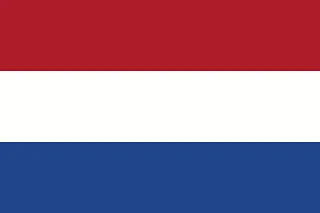| The blood of a little boy, lost in the ruins of a war zone, is the price of your silence! | If this were your child, would you still remain silent? | Children’s hands holding weapons carry the shadow of a completely shattered world! | Poor dear little Aylan Kurbani. He lost his future because you lost your humanity! |
Four innocent children, their lives shattered by the horrors of war. One lies dead on the ground, his dreams forever silenced. Another is wounded, his body marked by the horrors he should never have witnessed. The third holds a weapon in his hand, forced to fight in a world that has stolen his innocence. The fourth, trapped in the chaos, doesn’t know what safety or peace even means.
How much longer will we look away? How much longer will we remain silent? This cannot go on! These children are our future, and if we don’t rise up, if we don’t come together to stop the hatred and destruction, they won’t be the only ones. It’s time to speak up, to take action, to demand peace for them and for all of us.
How does this happen?
"It begins with power. Power in the hands of those who sow unrest and division. Power thrives in the fertile soil of fear, poverty, and uncertainty. When a society suffers, when people see no hope, they are willing to submit to leaders who promise to save them, no matter how dark the methods."
"The Banality of Evil: Ordinary People, Extraordinary Atrocities"
"We like to think we are different, that we are the exception. 'I would never do such a thing,' we say, convinced of our own moral strength. But history tells us otherwise. Reserve Police Battalion 101, a group of ordinary men—postmen, teachers, fathers, friends—became responsible for the murder of tens of thousands of innocent people during the Holocaust. Not because they were born evil, but because circumstances, obedience, and peer pressure turned them into perpetrators.
It is not monsters who become monsters. It is people like you."
"Slowly, the line of what is acceptable shifts. A small action, following an order, making a compromise with your conscience. Before you know it, you are a cog in a machine that seems unstoppable. And what remains is the shocking realization: I could have done this too."
The lesson we must not forget:
"The dividing line between good and evil does not run between countries, groups, or individuals. It runs through the heart of every human being. Evil gains a foothold only when we lose sight of our humanity
"The only way to prevent this is to stay vigilant, now. Ask yourself: What would I do if my values were challenged? How would I respond to injustice, fear, or peer pressure? What excuses would I make to justify staying silent?"
"We all bear the responsibility. Only by recognizing that we, too, can become this, can we ensure that it never comes to this. The world needs your awareness. Let your humanity speak. Always."
Reserve Police Battalion 101
A brutal confrontation with human nature
Reserve Police Battalion 101 was a German unit responsible for the mass murder of tens of thousands of Jews in Poland during World War II. This battalion did not consist of fanatical Nazis or trained SS soldiers, but of ordinary men. These were mostly middle-aged fathers, craftsmen, teachers, and small entrepreneurs from Hamburg. They were not ideological extremists, but rather "ordinary Germans" who had not sought active involvement in war crimes.
The Horrific Reality
In 1942, Reserve Police Battalion 101 was ordered to liquidate Jewish communities in occupied Poland. They carried out mass executions, killing victims—men, women, and children—by gunfire. Others were deported to extermination camps such as Treblinka. The men of the battalion were directly responsible for the deaths of over 38,000 Jews and the deportation of 45,000 others.
One of the most shocking aspects of this story is that their commander, Major Wilhelm Trapp, offered the men an opportunity to be excused from their first assignment if they were unwilling to participate. Only a handful of men took advantage of this opportunity. The majority, about 80%, carried out the orders, despite their resentment of what they were being asked to do.
The Illusion of Moral Superiority
Many people who hear about these events instinctively think, "I would never do such a thing. I am too kind, too moral, too humane." But such reactions reveal a lack of understanding of how social pressure, group dynamics, obedience to authority, and circumstances can force people to behave in ways that conflict with their personal values. The men of Reserve Police Battalion 101 did not initially have murderous intentions. They were not monsters, just ordinary men. What changed them was the combination of factors that can drive people to extreme situations:
-
Peer pressure No one wanted to be the exception or appear cowardly. Deviating from the group felt like betrayal.
-
Obedience to authority Orders came from above, and men believed they had a duty to fulfill.
-
Normalization of violence The repetition of violent acts made it easier to justify atrocities and to distance themselves emotionally.
-
Dehumanization Jews were presented as inferior by Nazi ideology, which made it easier to see them as "not human."
An Inconvenient Truth: You Are Vulnerable Too
This story forces us to look in the mirror. The men of Battalion 101 were not psychopaths. They were ordinary people, just like you and me. If they were capable of such atrocities under those circumstances, how certain are you that you would do otherwise?
Psychological research, such as the infamous Milgram experiment, has repeatedly shown that ordinary people can follow horrific orders when pressured by authority or social norms. Even the most empathetic and kind individuals can become perpetrators in situations of war, fear, and chaos.
The Lesson of Battalion 101
It shows us that evil is not external to us, but can be present within all of us, latently waiting for the right circumstances.
The only way to prevent such tragedies from happening again is to be aware of our own vulnerability. This means:
-
Cultivating Critical Thinking Openly question authority and peer pressure.
-
Fostering Empathy Recognizing humanity in everyone, regardless of differences in race, religion, or background.
-
Teaching History and Psychology Understand how social conditions and human nature combine to make atrocities possible.
Dare to look in the mirror.
Understand that these "ordinary men" were not unique, and that choosing to do good, even when it is dangerous or difficult, requires a conscious and ongoing effort. Because, under the right circumstances, you could do it too.
Statement
Reserve Police Battalion 101 confronts us with a hard truth:
Evil lurks not only in monsters, but also in ordinary people, like you and me. The perpetrators were not fanatical soldiers or ideological extremists, but fathers, craftsmen, and teachers, ordinary citizens who, under pressure from authority, group dynamics, and dehumanization, committed unimaginable atrocities.
This story is not just a history lesson, but a warning. It shows that each of us, under the right circumstances, is vulnerable to social pressure and obedience to authority. No one is immune. Only through critical thinking, empathy, and an understanding of our own human nature can we arm ourselves against the risk of one day making the same choices.
The lesson is clear and uncomfortable: evil does not originate outside of us, but within us. The responsibility to resist it lies with all of us.
A call for peace!
This is a call for peace: The Day of Nonviolent Maternal Rebellion.
It is time for the mothers to unite their voices against the madness of war. Mothers who give and nurture life refuse to remain silent any longer while their children and loved ones fall prey to the destructive game of power-hungry leaders.
A mother who loves as much, fears as much, hopes as much as anyone else, now stands face to face with soldiers who were once children themselves, who once knew the arms of their own mothers. Soldiers who, with weapons in their hands, may not realize that the women before them bear the same love as their own mothers. In one shot, the echo could be a bullet aimed at their own mothers, their own sisters, or their own children. This is the madness that mothers must stop—the fight in which they lose not only their sons but their entire futures. Mothers want peace. They do not want their husbands and children to die in senseless conflicts caused by the egos of those who hide behind their titles and borders. Mothers do not fight for land; they fight for love, for life, for the future of their children.
On the day that mothers take power, the world will finally know true peace. They will rise up against the idea that their husbands and children should fight and die for the whims of those in power. They, the mothers, understand what it means to give and protect, and will never again allow their loved ones to fall prey to the madness of war.
Let them rise up, and let their cry for peace be heard loud and clear. They have the strength, they have the love, they have the will to end this senseless violence.
Let the Day of Nonviolent Maternal Rebellion begin. For only they, the mothers, can bring the peace this world so desperately needs. Together, with their love as a shield and their determination as a sword, they can create a better future. For themselves, for their children, for everyone.
STOP THE WAR. BRING PEACE. THEY ARE THE MOTHERS. THEY ARE THE POWER. THEY ARE THE FUTURE.
On behalf of all mothers.


